I played around a bit and the first thing I found out is that definitions are available for more languages than just English and Japanese. See the following table for definitions of a few words including your example word for all the languages available from wn.langs() after downloading nltk omw-1.4. 'dog' has definitions in 7 languages, 'house' in 9, and 'person' in 11.
Regarding the missing definitions for certain languages, I think the data just isn't present in the corresponding wordnets. The NLTK wordnet documentation states:
This module also allows you to find lemmas in languages other than English from the Open Multilingual Wordnet (https://omwn.org/)
If you go to https://omwn.org/ and follow the links for the respective wordnets, you'll find for example this page where you can search for words in a few languages. Searching 'casa' in Spanish, you'll find the definition reverts to the English definition for 'house', but for Italian there is a definition in Italian - which is consistent with the table below.
Hope this helps!
| lang |
dog |
house |
person |
| eng |
a member of the genus Canis (probably descended from the common wolf) that has been domesticated by man since prehistoric times; occurs in many breeds |
a dwelling that serves as living quarters for one or more families |
a human being |
| als |
|
Ndërtesë për të banuar (zakonisht për një familje a për familje të një gjaku); banesë; apartament ku banon një familje. |
të qënurit njeri |
| arb |
|
|
|
| bul |
Вид домашно животно от семейство хищни бозайници, с различна големина, цвят на козината и различни породи, което лае и често се използва като пазач на дома и имота, за лов, може да бъде дресирано и обучавано за различни служебни цели. |
Сграда,помещение за постоянно живеене на отделно семейство или човек. |
Отделен човек, който със своите неповторими качества се отличава, различава от другите хора. |
| cmn |
|
|
|
| dan |
|
|
|
| ell |
σκύλος του γένους Canis familiaris που συνήθως προέρχεται από τον κοινό λύκο και έχει εξημερωθεί από τους προϊστορικούς χρόνους |
το τμήμα οικήματος (λ .χ. το διαμέρισμα πολυκατοικίας) στο οποίο διαμένει κανείς |
το έμβιο ον, κάθε άτομο, άνθρωπος ανεξαρτήτως φύλου και ηλικίας |
| fin |
|
|
|
| fra |
|
|
|
| heb |
|
מבנה המשמש כמקום מגורים למשפחה אחת או יותר |
מישהו דופק בדלת |
| hrv |
|
|
|
| isl |
|
|
|
| ita |
mammifero domestico dei canidi, molto comune, diffuso in tutto il mondo, con attitudini varie a seconda della razza |
edificio destinato ad abitazione |
entità umana considerata in quanto tale, senza caratterizzazioni di sesso, età, provenienza, ecc. |
| ita_iwn |
animale domestico molto comune, diffuso in tutto il mondo, usato per la caccia, la difesa, nella pastorizia, e come animale da compagnia |
|
essere distinto da ogni altro della medesima specie |
| jpn |
有史以前から人間に家畜化されて来た(おそらく普通のオオカミを先祖とする)イヌ属の動物 |
1家族以上のための居住棟として機能する住居 |
一人の人間 |
| cat |
|
|
|
| eus |
|
|
|
| glg |
|
|
|
| spa |
|
|
|
| ind |
|
|
seseorang yang dipandang tinggi |
| zsm |
|
|
|
| nld |
|
|
|
| nno |
|
|
|
| nob |
|
|
|
| pol |
|
|
|
| por |
|
|
|
| ron |
Animal mamifer carnivor domesticit, folosit pentru pază, vânătoare etc.. |
construcție destinată pentru a servi de locuință uneia sau mai multor familii |
Individ al speciei umane, om considerat prin totalitatea însușirilor sale fizice și psihice |
| lit |
|
|
|
| slk |
|
|
|
| slv |
|
|
|
| swe |
|
|
|
| tha |
|
|
|
| total |
7 |
9 |
11 |
Code used to generate the above table (in Google Colab):
import nltk
from nltk.corpus import wordnet as wn
nltk.download('wordnet')
nltk.download('omw-1.4')
import pandas as pd
defs = pd.DataFrame()
for lang in wn.langs():
for word in ['dog', 'house', 'person']:
this_word = {}
def_ = wn.synsets(word)[0].definition(lang=lang)
defs.at[lang, word] = def_[0] if isinstance(def_, list) else def_
defs[word] = defs[word].astype('object')
for word in defs.columns:
defs_present = len([def_ for def_ in defs[word].to_list() if def_ != None])
defs.at['total', word] = defs_present
defs

